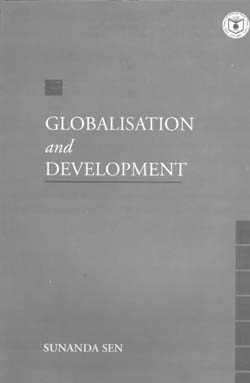Sunanda Sen, through her long career, has been writing extensively on questions related broadly to globalization, and in particular, on the intricacies of trade and financial flows and how these might impact the well-being of the working people, especially in the developing world. Most of her earlier work has been in the form of scholarly articles and books meant for the specialists in the field. This book, produced by NBT, is meant to address the lay reader, with an aim to present the key issues and debates around globalization and development in a clear, non-technical and accessible manner. As the US economy slides deeper towards a full-fledged recession, precipitated by the sub-prime mortgage crisis, the ability of financial markets to play havoc with the ‘real’ economy could not have been more apparent. While some commentators in India, especially those associated with the mainstream media, are still debating the extent of the downturn in the US economy and defending the innovative aspects of financial markets, inside the US, the grim reality seems to have hit home.
The implications of the collapse of the housing boom, the associated collapse of major banks with high exposure in the housing markets, coupled with the financial burden of the Iraq war has meant rising unemployment, cut back in consumer spending and overall economic downturn, with no signs of reversal in sight. These events bring to the fore the myriad connections between the ‘real’ and the ‘financial’—and point to the urgency of understanding these connections, especially in the present era of globalization and financial deregulation.
However, financial markets are extremely complex and sophisticated entities, steeped in a mystique that makes them particularly hard to comprehend. The international economic order, managed as it is, by international multilateral institutions, like the IMF, WTO and so forth, is very clearly partisan in favour of international capital, but often in ways that are not immediately apparent. The utility of commentaries and monographs, like the one under review, is to demystify these processes and to lay them bare to the general public for inspection. While the volume outlines a comprehensive framework and does indeed engage with a wide range of issues, and thus reflects the diverse interests of the author, it unfortunately falls between two stools, uneasily suspended somewhere between the rigour of an academic publication and the simplicity of a manual for the public. Thus, it might leave both types of audiences, the specialist and the general, asking for more. It doesn’t help matters that the NBT production standards leave much to be desired. Typos are abundant—Pinochio for Pinochet (p. 24), for example. So some things, like the figures on p. 98 that show India’s per capita income as greater than that of China, can safely be attributed to proofing errors. Given the quality of the author’s other works, it is a pity that these errors managed to slip through the cracks. However, the central message of the volume is clear and needs to be endorsed: globalizaton is a reality that cannot be wished away, and that the focal concern has to be development targeted to improve the well-being of the majority of the people. The challenge, of course, is how to achieve this kind of development in a globalized world.
Ashwini Deshpande is Professor of Economics at the Delhi School of Economics.

